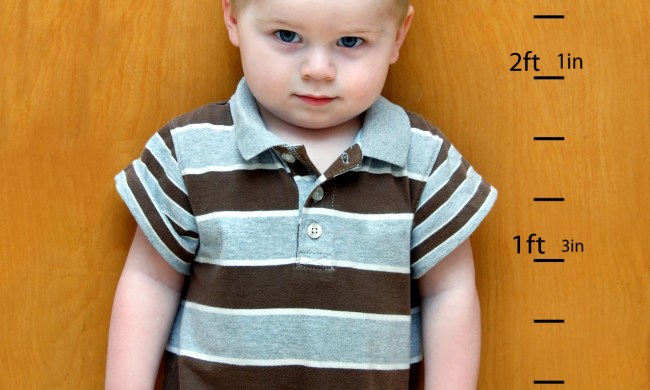As we exit the toddler years we expect the fits and tantrums to subside, right? Wrong. During the teenage years, you may begin seeing some of the same angry behaviors reemerge. From door slamming to shouting, teenagers can become tumultuous.
You may find yourself tiptoeing around your teen or bracing yourself for what type of attitude she will bring with her when she walks through the door. You have seen the teen stereotypes — eye rolling, talking back, and heavy sighing — but when it comes to teen anger, deciphering what is normal can be challenging.

Becoming angry is a feeling we all experience and is completely normal. How many times have you shouted at a car that cut you off or rolled your eyes while answering an email? However, you may begin noticing your teen’s anger seems to be more frequent and louder than what you consider the norm.
When you ask your teen why he is mad, his list may seem endless or he may grunt at you and never answer the question. What causes teen anger can typically be reduced to a couple of major changes in a teen’s life.
Learn more about what causes teen anger and explore tips for dealing with these dicey times. More importantly, discover when it is time to seek help for your teen’s anger.
What causes teen anger?
Teen anger can stem from many factors, both internal and external. Although the reasons your teen is becoming angry may change from day to day, the causes of those feelings can typically be boiled down to two reasons: hormones and stress.
Hormones
Your teen is experiencing puberty and the changes to your teen’s body do not stop at their physical appearance. Along with growth spurts, acne, and body hair, your teens are also experiencing shifts within their bodies, too.
During puberty, your teen’s brain is developing and this can impact how often your teen experiences emotions and how intensely he experiences those feelings. Did you know your teen’s brain will not even fully develop until years after he graduates high school? In fact, the part of the brain that is responsible for decision-making and regulating emotions is one of the last sections of the brain to finish developing.
Hormonal changes in the body can cause your teen to quickly flip from peaceful to mad without any clear indication that a mood swing is coming. The puberty-induced hormones can also create a more intense feeling of anger than what your teen may be used to experiencing.
Tips to try:
- Listen to your teen and try to empathize with her feelings
- Help your teen understand the changes in his body to help him start to better regulate his emotions
- Offer up strategies like deep breathing exercises or meditations for your teen to try
Stress
Being a teenager is hard. Your teen can wear many hats including student, son, friend, athlete, sibling, and employee. Teens learn to balance a difficult workload of multiple assignments, tests, and projects. The increased responsibilities and roles of the middle and high school years can cause a lot of stress, which can in turn make your teen extra grumpy.
Along with the amplified workload, your teen is also navigating social stressors. The fear of being bullied or actually experiencing bullying takes a toll on teens’ mental state. Even just worrying about how to fit in with peer groups is stressful.
On top of the stress, your teen may be staying up late and getting up early to meet all the demands of her day. The lack of adequate sleep can increase the feelings of being stressed and make your teen quick to become angry.
Tips to try:
- Model and encourage healthy eating and sleeping habits
- Offer to help your teen create an organizational system to keep track of different demands
- Encourage your teen to develop a hobby for stress relief like exercising or journaling

When should I be concerned?
Although experiencing feelings of rage and fluctuating anger is normal for every person, and especially teens going through puberty and the stresses of adolescence, there are warning signs parents need to be aware of.
There are red flag behaviors to watch out for. If your teenager continually threatens to physically harm themselves, you, or others, you should be concerned. Seek immediate professional help if your teen follows through with any threats to cause bodily harm.
Prolonged periods of rage or anger that seem more intense than what is typical for your teen may also be a sign that your teen needs help. Several mental health conditions have anger as a symptom and may be worth exploring with a medical professional. If your teen’s anger is also accompanied by intense feelings of sadness or worthlessness, your teen may need a mental health evaluation. Call a medical professional immediately if your teen demonstrates any suicidal thoughts or actions.
Anger is a human emotion we all experience from time to time. Your teen is going through puberty and experiencing changing hormones which can increase her mood swings. Although anger is normal, understanding where your teen’s anger is coming from can assist you in helping your teen through these tough times.



